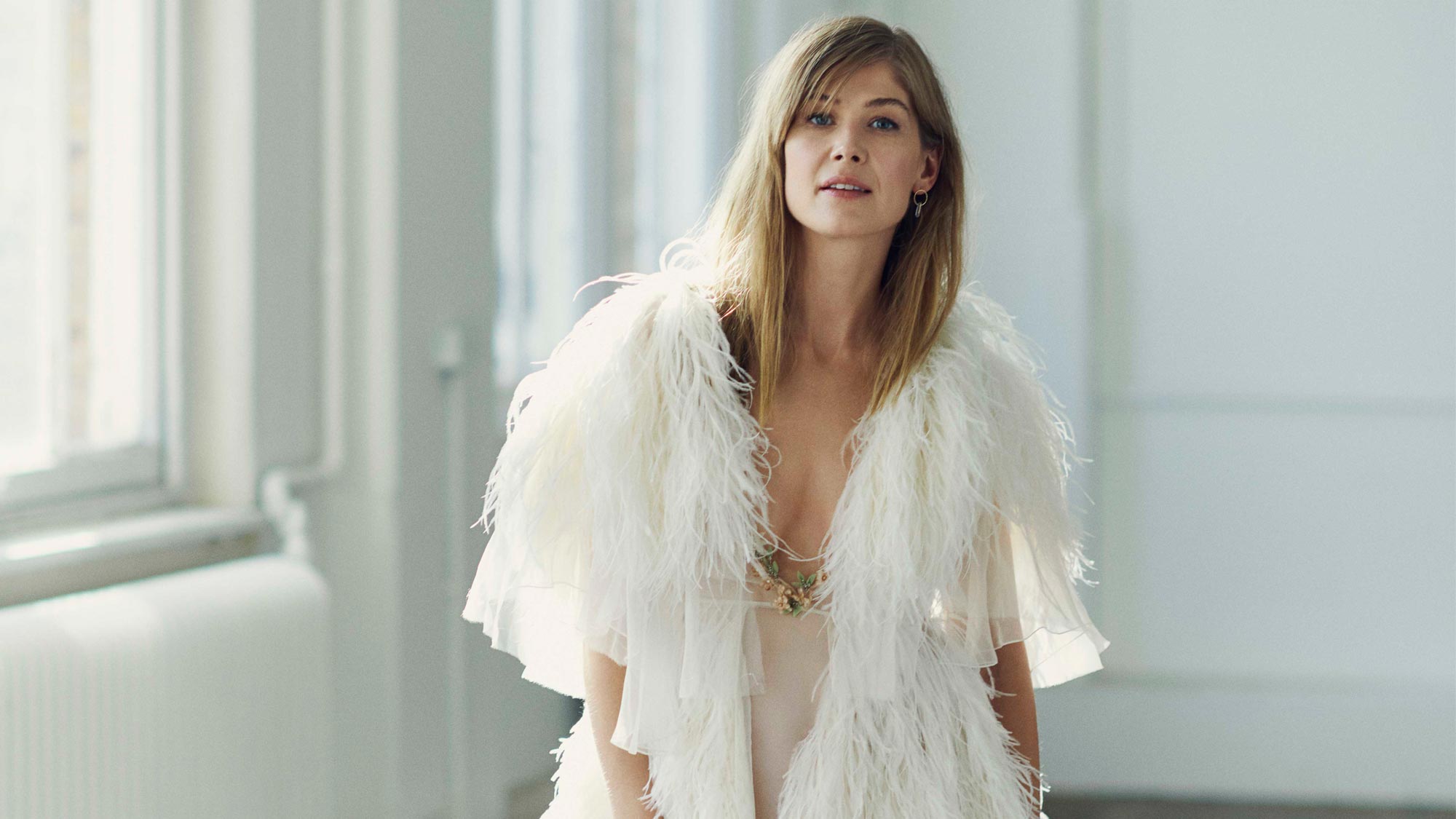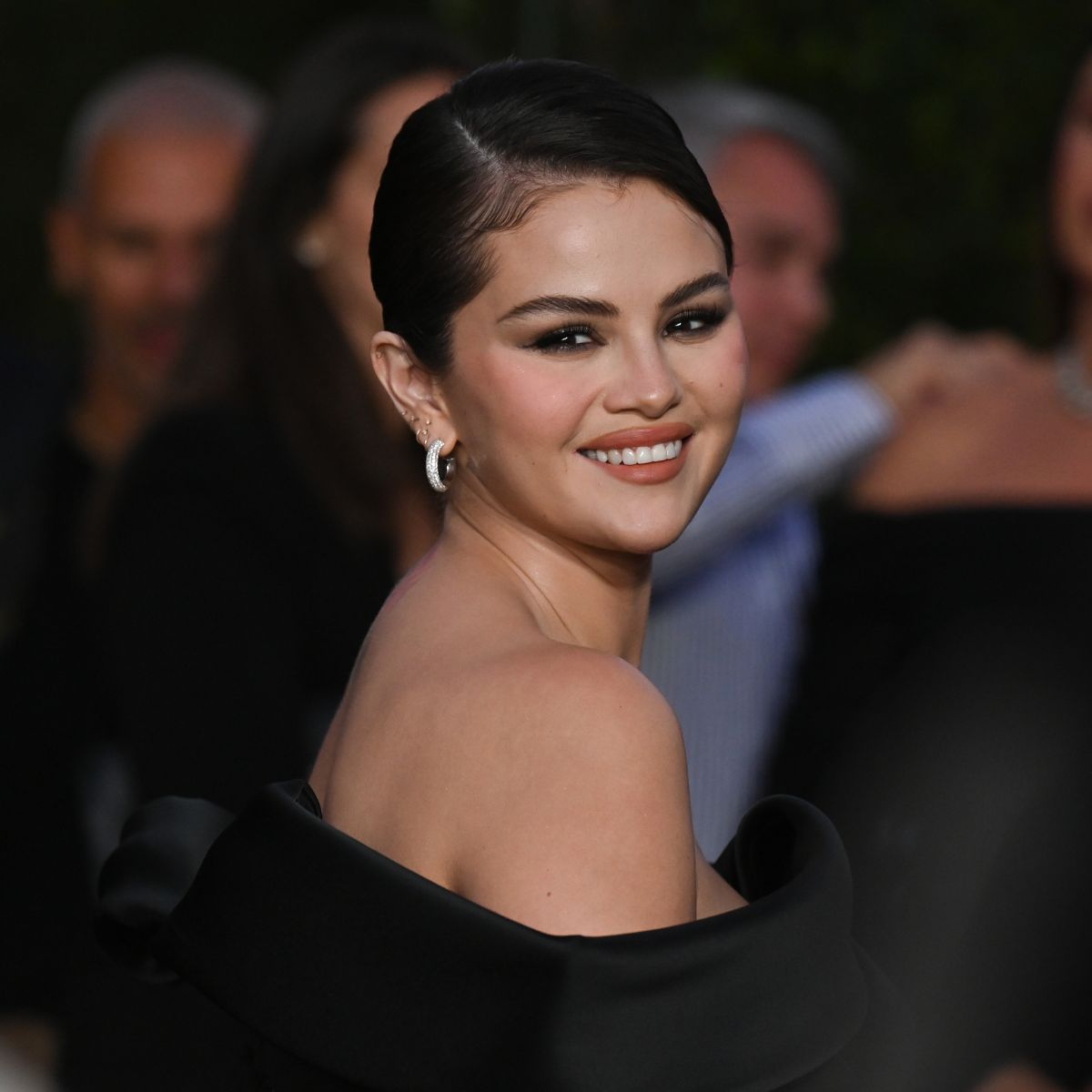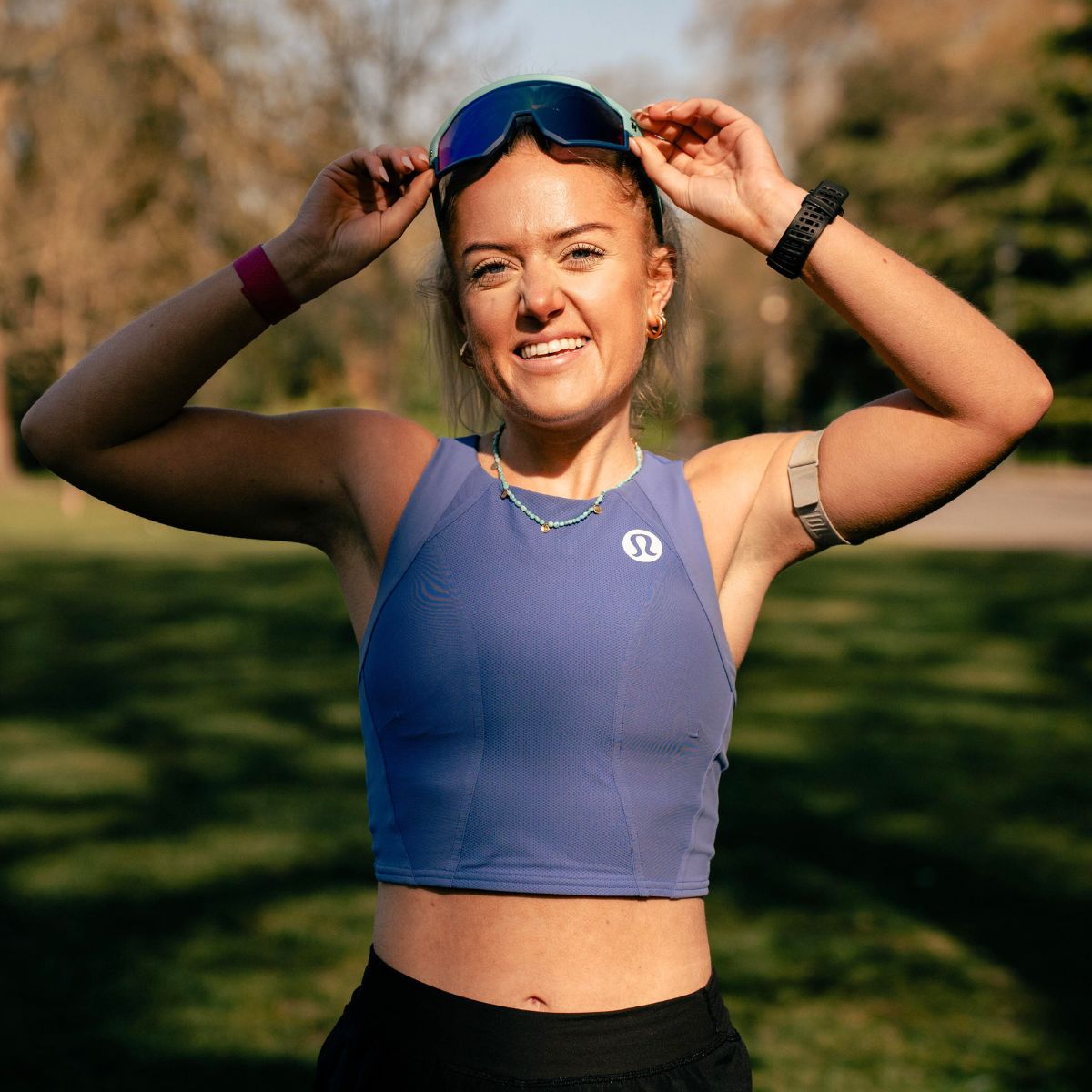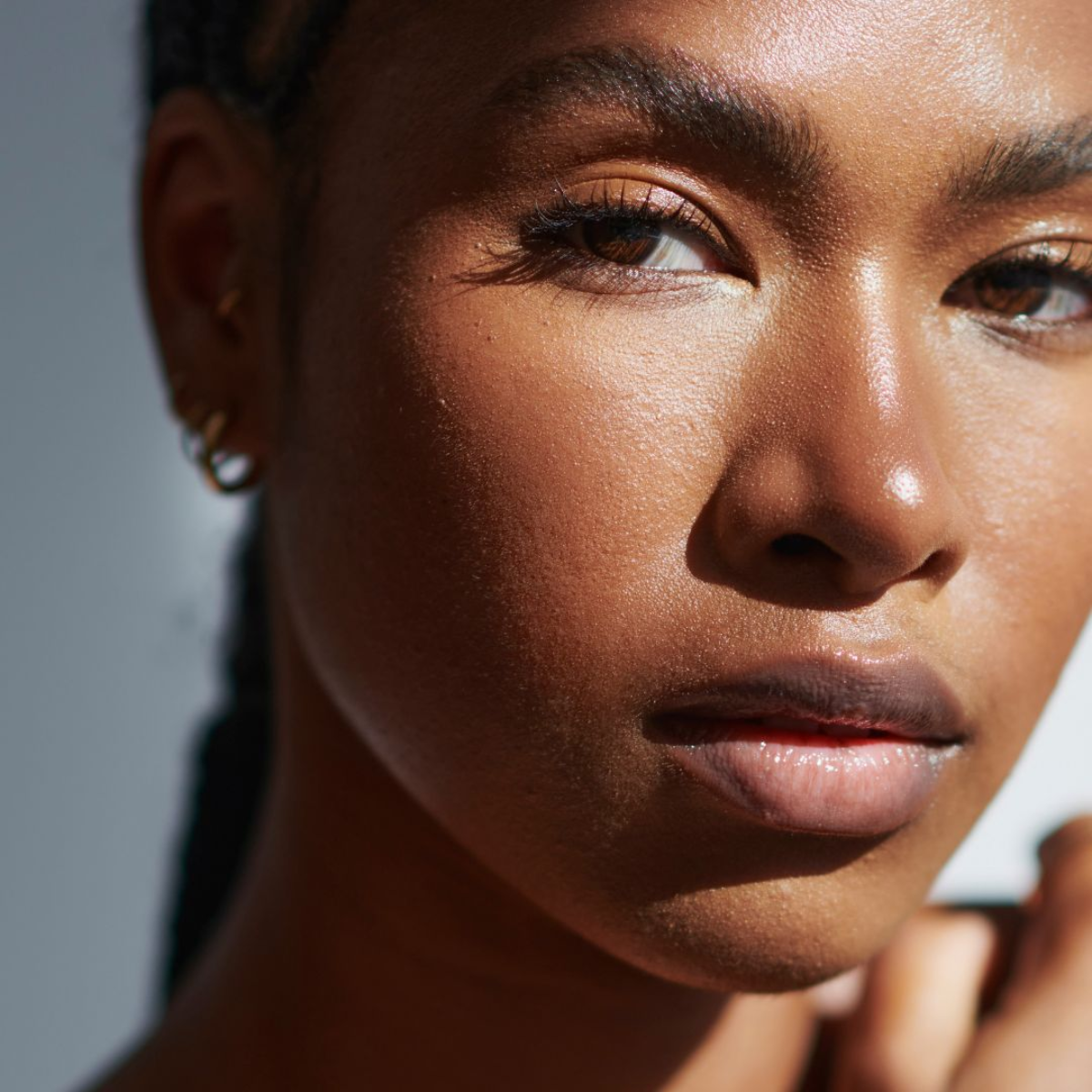Rosamund Pike talks fear, anger and why her latest film role is her most challenging yet
Her portrayal of intrepid war reporter Marie Colvin taught actress Rosamund Pike some valuable life lessons. Here, she tells Martha Hayes about overcoming fear, embracing female anger and knowing your worth

Her portrayal of intrepid war reporter Marie Colvin taught actress Rosamund Pike some valuable life lessons. Here, she tells Martha Hayes about overcoming fear, embracing female anger and knowing your worth
Rosamund Pike is looking at me suspiciously. ‘What are you doing?’ she enquires, as I tap into the interview questions on my iPad. ‘Are you playing solitaire?’ We both laugh when I realise that yes, that’s exactly what it looks like. For the record, I’m not, but top marks to Pike for her journalistic eye for detail.
Inquisitive, tenacious and disarmingly direct, the 39-year-old actress would make an excellent reporter. It stands her in particularly good stead playing the iconic lead role in A Private War, which pays tribute to Marie Colvin, the legendary Sunday Times war correspondent whose career successfully spanned 30 years until her tragic death during the bombardment of Homs, Syria in 2012. Not since the critically acclaimed Gone Girl (2014), which won Pike an Oscar nomination for her chilling portrayal of Amy Dunne, has there been this level of buzz around a film she has starred in. Role of a lifetime is an understatement.
The remarkable feature debut of documentary maker Matthew Heineman follows Colvin for the last ten years of her life at the forefront of conflicts in Sri Lanka (where Colvin famously lost sight in her left eye in a blast, and continued to work wearing an eyepatch), Iraq, Libya, Afghanistan and Syria. In our post-truth world, Colvin’s story resonates hugely and alongside the obligatory press commitments and premieres, Pike recently found herself interviewed by world-renowned correspondent and news anchor Christiane Amanpour.
Meeting at a French bistro around the corner from the north London home she shares with her partner Robie Uniacke and two young sons Solo, six, and Atom, four, Pike recalls it was Amma Asante (who directed her in 2016’s A United Kingdom) who first told her a film about Marie Colvin was on the cards and urged Pike to get involved. ‘She said to me, “A lot of people think of you as quite refined… but I know there’s much more to you.”’ You only need to watch her in action – or read on – to realise Asante is spot on.
Given how recent the loss of Marie Colvin is to all who knew her and how inimitable she was, you must have felt an enormous responsibility portraying her.
‘At the end of the film, Marie says, “Fear comes later when it’s all over.” And now I’ve done it, sometimes I think, “How did I have the audacity?” There were definitely times I felt at a loss in the preparation; that it was too big, that there was too much to change. The voice, the smoking, the head gestures, her laugh, her walk, her brain… everything, really.’
Colvin is often described as fearless, so I was interested to hear Lindsey Hilsum [author of In Extremis: The Life of War Correspondent Marie Colvin] say she wasn’t fearless, but motivated enough to overcome her fear.
‘I agree. She had tremendous fear, but pushed through it anyway. The idea that she was motivated to suppress it is highly relevant. Paul Conroy [Colvin’s loyal photographer who survived the blast that killed her] acknowledged that there were moments where she would go terribly quiet before they were about to move location and he would know she was terrified. You can talk yourself down from the ledge of fear, but it’s only a free pass − it will come back eventually.’
Marie Claire Newsletter
Celebrity news, beauty, fashion advice, and fascinating features, delivered straight to your inbox!
That feels very relatable. Is fear something you battle with?
‘I battle with fear constantly. I try not to let it control me, but it is always waiting, trying to control us.’
Colvin was popular and had lots of close female friends (including the journalist Rosie Boycott and politician Jane Bonham-Carter) who you were able to consult. How did that help?
‘Rosie lent me a sweater that was Marie’s [to wear in the film], which was very moving. There’s a horrible fear that you’ve dared to tread in their dear friend’s shoes, and that can make you feel quite apologetic at times, although in this case, I’m not apologetic because we’ve made the film with the fiercest integrity. Gradually, people trusted that Matt [Heineman, the director] and I were committed to depicting their friend truthfully and not for any Hollywood-isation.’
You had a big seal of approval from Paul Conroy (played by Jamie Dornan), who visited the set…
‘He was full of funny stories about her, and they were a clue to Marie’s humour. Little details like finding an egg when you’ve been in Misrata for two months. Marie was like (adopts deep, gravelly voice), “Paul! I have an egg! Don’t let anyone see that I have an egg!” And so began a row over whether to scramble or fry it. But it was also a relationship where, here’s this strong woman and this handsome man, and it’s not about sex.’
That’s so refreshing. What the film does brilliantly is capture the paradox of Colvin. She was brave, but flawed; she struggled with the very thing that drove her. What do you make of that?
‘I can relate to it. There’s an ambivalence guilt to sharing people’s pain; to bearing witness to suffering but knowing all the time that you can go home. Occasionally, I think that bothered her so much that instead of going back to London, she went deeper in. Is that reckless? To take that home? It’s so complicated.’
Extreme jobs come at a cost.
‘And what is the emotional fallout of pushing yourself to any kind of extreme? I think Marie was particularly tortured by the discrepancy between her romantic ideals and the reality she found. She wanted to live everything to the fullest and often life fell short. She couldn’t always live up to the myth of Marie Colvin. Sometimes, I think it pained her. Other times, she was having the time of her life, wildly happy and free.’
If she worked hard, she played hard, too. She was always the last to leave the party. When she lost her sight in one eye, she said, ‘What I want most, as soon as I get out of hospital, is a vodka Martini and a cigarette.’ I love that.
‘She was someone you’d want to be your friend; she was never the good girl. After her second marriage, all the wedding presents were still wrapped up under the stairs [in the sense of], “If I unwrap the toaster, am I domesticating myself in a way that I don’t believe in?” Of course, the detail that sticks out for most people is after she lost her eye, and her editor saw a picture of her in a hospital bed and asked, “What’s with the lacy red bra?’ and she said, “What are you talking about? That’s a cream bra soaked with my blood.” This woman is metal!’
And she needed to be, in such a male-dominated world. As a woman doing the job better than men, how did they react to her?
‘I think she was a difficult person, whether that’s because she was a woman, I don’t know. She was a frustrating person because she didn’t do things on time. It was a huge liability for the editor, who’d have a hole on the front page wondering if she was going to file copy. Brilliance was certainly there, but is it OK to be brilliant and a frustrating, unreliable person? Most people forgave her, I’m sure there were some who didn’t, but you don’t have to admire everything about an admirable person.’
That reminds me of Amy Dunne in Gone Girl. Yes, she was a sociopath, but she was also true to herself, which makes her kind of admirable in a culture where women are labelled hysterical.
‘I’ve always embraced female anger. This is my latest read [scrolls through her phone to find it] – Good And Mad: The Revolutionary Power Of Women’s Anger by Rebecca Traister. I wrote about anger when I was doing a play called Gaslight at The Old Vic in 2007. I can’t remember what my argument was or whether I was just hinging it on the play to make a point about feeling angry.’
Do you think things are changing and that anger can be viewed as a good thing?
‘I’ve never been frightened of anger. I think anger can be liberating. I encourage my children to say, “I am angry because…” Before you attack verbally, you could feel empowered. People are taught that anger is bad. It’s not an emotion we’re very educated in. Sometimes we feel upset or disempowered or weak, and what we’re actually feeling is angry but we haven’t deciphered it.’
I often think crying is anger you can’t express.
‘And anger-management classes − are they about trying to suppress it or articulate it? I’ve no idea. One of Marie’s great lines in the film is when someone says, “I don’t know that you should go into Syria,” and she says, “It is so anger-making it’s worth it.” I wrote that out on the top of my script. Anger can be a terribly constructive feeling if harnessed in the right way. Indifference is the great destroyer, but anger can be very creative.’
You’ve spoken in the past about your frustration that male actors play supporting roles to other men, but are less likely to support a female lead. In 2016, you said you were comfortable playing number two. Do you feel any differently now?
‘Yes, I think that probably bespoke a certain fear, didn’t it? It suggested that if a film fails and you’re number one, then it’s on your head. That’s the pressure of being number one on the call sheet.’
Did you feel that pressure with Gone Girl?
'I wasn’t number one on the call sheet, I was number two [to Ben Affleck]. I’ve played two lead women in the past year [as well as Colvin, Pike will play Marie Curie in Radioactive, out in spring] and I’ve had great male actors support me. Now I’m like, “Yes, I’m ready for this.”’
How has the #MeToo movement affected you?
‘What I’m most conscious of is making sure I’m a touchstone for younger women on set. Sometimes − especially as a girl, I think − you can seem a lot more together than you feel. It’s important for me now to look at these young women who appear really sure of themselves and remember that they’re probably not. When I was 21 and doing a Bond film [Die Another Day in 2002], I looked calm and confident but I didn’t feel it. I always felt wrong, that somehow I was an imposter.’
I wonder when that feeling stops?
‘I was just thinking about Christiane Amanpour cited everywhere she went as being the highest paid woman in TV. At one time, a woman might have felt embarrassed about that, but I think now they should embrace it: “Fucking yes, I am the highest paid woman”. Contractually, there is more parity between men and women now − agents have woken up to that.’
Are you vocal about it?
‘I haven’t drawn up any contracts since Time’s Up. I might do some digging, now we’re talking about it. I’ve never found it very easy to talk about money, that’s just the way I was brought up. I’ve always felt lucky to be working at what I love doing…. don’t print that, nobody will pay me again! For a woman to say, what am I worth? I think it’s better to say, what is my time worth? That’s the way we should rephrase it.’
Your Marie Curie role is up next. She won two Nobel Prizes and, in discovering polonium and radium, changed the course of the 20th century. Is she the real-life wonder woman?
‘She was so cool, I don’t think people have any idea. But she was also really odd. She had no filter and did not give a damn about whether anybody liked her. I’ve got a wonderful recording of my son saying, “Marie Curie is not alive so they had to have you, and your hair was too bright so they changed your hair’. I went into his school to do a talk about her with a load of glow sticks − radium was green and polonium was blue. I think they might end up thinking that Marie Curie invented glow sticks.’
That’s brilliant! Where do you go from here?
‘I just want to sit back for a bit. Pretending to be someone else is quite fragmentary, so it’s important to just be you for a while. And I want to work with the directors who have blown me away this year. Roma by Alfonso Cuarón is the most beautiful piece of work. I’d love to work with him. Why not say it? He might think I’m awful but if you never say it, you never find out. You have to speak your truth.’
A Private War is in cinemas from 1 February 2019
-
 Selena Gomez has re-entered the conversation about her 'Emilia Pérez' criticism
Selena Gomez has re-entered the conversation about her 'Emilia Pérez' criticismBy Jenny Proudfoot
-
 I'd never run a marathon before - six years on, I'm one of the UK's fastest female marathoners. Here's how I train every week
I'd never run a marathon before - six years on, I'm one of the UK's fastest female marathoners. Here's how I train every weekSerious inspo, served.
By Ally Head
-
 There’s a big difference between sensitive and *sensitised* skin—here are four derms on the key distinctions
There’s a big difference between sensitive and *sensitised* skin—here are four derms on the key distinctionsPlus, ways to approach both
By Denise Primbet